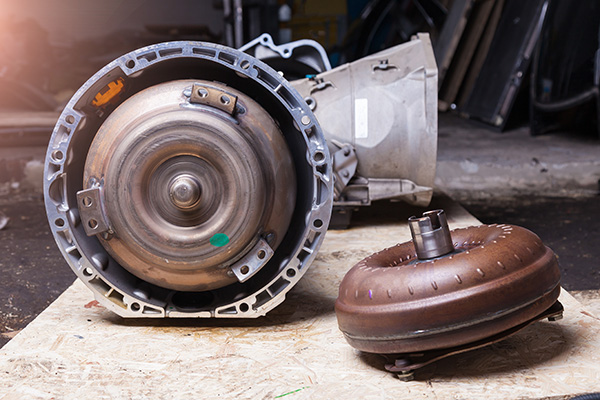
The torque converter in an automatic transmission is one of those parts that you don’t often think about—until something goes wrong. It quietly handles the connection between your engine and transmission, allowing your car to shift gears and keep moving smoothly. But when the torque converter starts to fail, it doesn’t stay quiet for long.
Knowing the signs of a worn or failing torque converter can help you act before it leads to serious transmission damage. If your car feels different during shifting or acceleration, here’s how to tell whether your torque converter might need replacing.
Unusual Slipping While Driving
One of the most common signs of torque converter trouble is gear slipping. You might notice your engine revving higher than usual without a corresponding increase in speed, especially when accelerating from a stop. This happens when the torque converter fails to transfer power efficiently between the engine and transmission.
Slipping can feel subtle at first but tends to get worse over time. If it starts happening more frequently, especially during light acceleration or uphill climbs, it could be a clear sign that the internal components of the torque converter are wearing out.
Shuddering or Vibrations at Certain Speeds
If your car vibrates or shudders while cruising or accelerating gently, the issue may stem from the torque converter lock-up clutch. This clutch is designed to engage at higher speeds to provide a direct connection between the engine and transmission, improving fuel efficiency and reducing slippage.
When the lock-up clutch wears out or malfunctions, it can engage unevenly, causing the car to feel like it’s “shaking” for a second or two. Many drivers describe it as driving over a rough patch of road that disappears quickly.
Delayed Engagement When Shifting Into Drive or Reverse
If there’s a delay or hesitation when you shift into drive or reverse—especially when the engine is cold—it may point to a problem with hydraulic pressure inside the torque converter. A delay of just a couple of seconds may not seem like much, but it’s often an early warning sign that something’s not working as it should.
This issue can also be caused by low or degraded transmission fluid, so it’s worth checking fluid condition first. However, if fluid levels are fine and the hesitation persists, the converter could be to blame.
Strange Noises Coming From the Transmission
A healthy torque converter should be silent. If you hear a whining, clunking, or grinding noise—especially when the transmission shifts—it could be due to worn bearings or internal damage inside the torque converter.
These noises often change with engine speed, and they may be accompanied by other symptoms like slipping or poor acceleration. Any unusual sound from the transmission area deserves attention, especially when combined with shifting problems.
Transmission Overheating or Fluid Contamination
Because the torque converter relies on transmission fluid to transfer power, any issue with the fluid can affect how the converter performs. If the torque converter is slipping excessively or the internal components are failing, it can generate excess heat.
Overheating transmission fluid can lead to dark, burnt-smelling fluid and, in extreme cases, trigger a warning light. If your fluid is discolored or smells off, it could be a result of internal torque converter wear—or it could be contributing to the problem.
When It’s Time for Replacement
Not every torque converter problem requires immediate replacement. Sometimes, a fluid flush or filter replacement can resolve minor issues, especially if the fluid is old or contaminated. But if the internal clutch, bearings, or turbine are damaged, replacement is usually the most effective long-term solution.
Replacing a torque converter involves removing the transmission, which makes it a labor-intensive job. That’s why getting a correct diagnosis is key. Replacing only the converter when the rest of the transmission is healthy can restore performance without the need for a full rebuild.
Bud’s Auto Repair & Transmission – Torque Converter Specialists in Marysville, WA
At Bud’s Auto Repair & Transmission in Marysville, WA, we understand how critical the torque converter is to your car’s performance. If your vehicle is slipping, vibrating, or hesitating when shifting, our team can run detailed diagnostics to determine whether your torque converter needs repair or replacement. Don’t ignore the signs—schedule an inspection and keep your transmission running at its best.